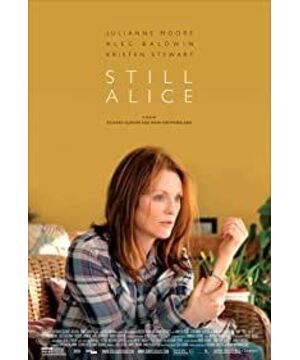I have read a short story called "The Retrograde Clock", which tells a story of a backward life. The birth of a person begins in the cemetery and lives backwards.
"They become in love, trust each other, become tacit and tacit. However, the cruel time gradually swallows their beautiful memories with the retrograde clock. Every time they do something together, they will forget one thing together. Things, feelings will also be reduced. So they gradually began to be separated, become strange and restrained, but they also returned to a bit of passion and freshness, and they were a bit shy and reserved in their conversations. These are all At the moment that was enough to make a blushing heartbeat, although they were no longer close, they began to respect each other like friends. They forgot all the shortcomings and unhappiness of each other, although each other would appear stranger and mysterious every day, but this kind of youthfulness Feeling unreasonably let their heartbeat speed up day by day.
Finally one day, they sat together, shared the last cup of coffee, wiped each other's phone from their mobile phones forever, and then happily talked and exchanged greetings with each other. He got up and sat back in his seat. When he looked at her from a distance, only his goodwill and curiosity about her were burning and steaming.
Finally, he got up and walked out of the coffee shop, and the girl, never It hasn't existed in his memories." The
story is very romantic, like all the heartbeats of Pete and Cate Blanchett in "The Curious Case of Benjamin Button" at the exact moment. But the forgetting of Alzheimer's disease is completely different and cruel. So it is also the meaning of the existence of this type of film.
2 Alice's identity is established as a well-known linguist, perhaps to deepen the sense of impermanence in life. As a senior intellectual, we have seen the logic of her way of fighting forgetting. Folders are divided into categories, memorization exercises, and strokes are used to avoid repetition. Do you forget less than others? not at all.
The speech at the sharing meeting showed the sorrow of a female intellectual's illness, forgetting that a complete ideological system was built with the effort of several times more than others. At that moment she was extremely awake and extremely painful.
3 It is completely different from the love-crazy in Korean dramas. There are hospitals and doctors for medical treatment, and nursing at home. The essential care for Alice from the husband portrayed in the film is almost absent. From the anxiety of learning about the condition, to the speechlessness of watching Alice looking for the phone in the middle of the night, to the final departure, he was honest and could hardly accept all this. The husband's presupposition to grow old is to hold his hand and grow old with him, not a stranger who is most familiar. This is completely different from the setting of infatuated men in Korean dramas. Alice once went to the nursing home by herself, but in the end she has lost the ability to dominate herself.
4 The arrangement of the relationship between the children is quite satisfactory. Three children, one studying medicine, one studying law, and one refusing to go to university. There are two points that can be paid attention to here. The first is that it basically reflects the parent-child relationship in the United States. Both parties are independent personalities. The advantage is that the various parents’ desire to control their children as described by "Parents Are Harmful" (although Alice hopes very much) The youngest daughter went to school to find a stable job, but after all, she just stopped talking). The downside is that the parent and child don’t seem to be so close ("August Osage County"), and it involves the family ethics between the East and the West. The second is three children, and the one who finally came to accompany Alice was the little girl who seemed the most "failed". Pay attention to the scene where the father and the eldest daughter and son discuss how to "handle" Alice. The three people sit around the dining table, indicating that they still maintain the warmth of the family. Alice sits alone in the living room facing them, mixing with the furniture. The three people affirmed each other's contribution, but none of them really cared about what she was thinking. Only the little daughter, Lydia, who was absent from the family meeting, said for the first time that she saw that her mother was sick (interrupted by the elder sister), the second time patiently responded to her mother’s repeated questions (interrupted by the elder sister), and the third time she asked her mother this What was the feeling of being sick? After her mother said it, she said that it was really miserable. The two smiled at each other, and put their diary on her mother’s bed for the fourth time, saying No Secrets (I don’t remember Alice anymore) What happened? For her, she was completely open to her mother), read the script to her for the fifth time, and asked her what you think it was about. Mom said, It's love, and the two laughed together.
The image of the eldest sister as a typical "exquisite egoist", and Lydia as the image of a "wandering sincere man" can continue to be analyzed.
5 If at the end of life, you can only live in one moment, guess what is the one you will remember in the end?
View more about Still Alice reviews











